EQUITY CONSCIOUSNESS
Creating conditions where connection occurs and factors like race, geography, and income do not predict belonging and thriving

DEVELOP EQUITY VOCABULARY
How can I become more comfortable identifying and talking about inequity?
LEARN
From The Annie E. Casey Foundation, a list of definitions of core concepts for helping to develop a shared langauge for racial equity and inclusion
Hone your listening to see and address inequity, from ASCD's Educational Leadership
From TEDx Talks, "2019 National Teacher of the Year, Rodney Robinson, uses stories from his years teaching in the Richmond Juvenile Detention Center to show the need for teachers of color."
PRACTICE
An activity to "examine some of the tough questions that arise when educators act to address equity," from School Reform Initiative
Ready to facilitate a conversation with your team where you want to learn and hear from divergent and diverse perspectives? Inviting the team to premediate the structure, norms and protocols is a critical step. Practice with this resource from Essential Partners.
EXTEND
Listen to Brene Brown talk with Emmanuel Acho, Fox Sports Analyst (Co-Host, FS1 “Speak for Yourself”) and Host/Producer of Uncomfortable Conversations With a Black Man, about driving open and uncomfortable dialogue about racism in context of history and culture today.
This presentation from the North Carolina Resilience and Learning Project dives into data, strategies and policy recommendations for understanding adverse childhood experiences and creating change in trauma-informed equity supports in schools.
BUILD EMPATHY MUSCLE
How do I adopt an asset-based perspective of differences?
LEARN
What is The Belief Gap and how do we address it? From EducationPost.org
An introduction to what it means to have an "asset-based approach" to education and why it matters
Dr. Chris Emdin is committed to "reimagining education for kids like me who didn't want any parts of it." He shares his perspectives and ideas on this talk with Tim Knowles of the Carnegie Foundation
PRACTICE
Although designed for Court Appointed Special Advocates (CASA), anyone engaging with children and families can benefit from this quick and simple activity. Follow the instructions on the first page to practice using a resource lens, then learn more on the second page about the behavioral and outcome differences between using a deficit lens and a resource lens.
Surface patterns of negative thinking about students and use four steps to reframe, from Educational Leadership
EXTEND
Author Vanessa Siddle Walker describes how desegregation failed to be an additive model but the original vision for aspiration, advocacy and access could be renewed through the commitments and collaborations of educators
On the Hidden Brain podcast, social psychologist Claude Steele explains “stereotype threat” and how eliminating this threat can reduce anxiety and improve performance
EMBRACE YOUR ROLE
What is my role in perpetuating inequity? How do I promote equity, instead?
LEARN
In one of the top ten most-viewed TED talks, novelist Adichie describes how we risk critical misunderstanding if we hear only a single story
Science shows that leaders can solve for bias but still fail to create an inclusive culture, as explained in this article from the NeuroLeadership Institute
A spotlight on what happened when high school students were given the space to examine and question the American education system from the perspective of their own learning experiences
PRACTICE
A card deck from a collaboration between the Stanford d.school’s K12Lab and The National Equity Project that guides you through the Liberatory Design Process, Mindsets, and “Do Nows.”
EXTEND
According to the experts at FranklinCovey, your workplace can achieve its highest performance rate once you start to overcome your biases and allow your employees to be whole people. This book provides tools to reframe the unconscious thoughts that are part of the human condition--and can have vast effects on our success
On this episode of A Bit of Optimism with Simon Sinek, Chole Valdary shares her point of view about how to navigate the world of diversity, equity and inclusion--by first finding love within ourselves.

